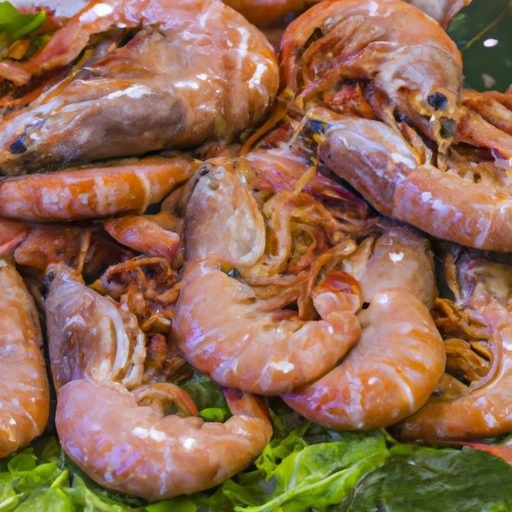Prawn
Description

Prawns are a popular seafood ingredient found in oceans around the world. They belong to the same group as shrimp, with some differences in size and habitat. Prawns have a delicate, sweet flavor and firm, juicy texture, making them a sought-after ingredient in a variety of dishes. In recipes, prawns can be measured using different units such as grams (g) and kilograms (kg) in Europe and Asia, or ounces (oz) and pounds (lb) in America.
Common uses
Prawns are commonly used in a variety of culinary applications, including appetizers, salads, main courses, and even some desserts where seafood is a component. They can be eaten on their own, seasoned with spices or marinated in sauces, and are also a popular addition to pasta, rice dishes, and soups.
Nutritional value
Calories
A 100g serving of prawns contains approximately 99 calories (415 kilojoules).
Protein
Prawns are rich in protein, with about 24g per 100g serving.
Fat
Prawns are low in fat, with around 0.3g of fat per 100g serving.
Carbohydrates
Prawns contain a negligible amount of carbohydrates, less than 1g per 100g serving.
Vitamins
Prawns are a good source of B-vitamins, particularly vitamin B12, and also provide vitamin E and vitamin A.
Minerals
Prawns are rich in minerals such as selenium, phosphorus, zinc, and iodine.
Health benefits
Prawns are a heart-healthy food, thanks to their high protein content and low levels of saturated fat. The presence of omega-3 fatty acids can contribute to cardiovascular health. Additionally, the antioxidants in prawns, like selenium, can help combat oxidative stress in the body.
Potential risks
Some individuals may be allergic to prawns and other shellfish, which can cause severe reactions. Prawns can also contain harmful bacteria or viruses if not properly cooked. There is a risk of consuming heavy metals and pollutants with wild-caught prawns, so it's important to source them from reputable suppliers.
Common recipes
Prawns are featured in recipes like paella, prawn curry, shrimp gumbo, prawn cocktail, and sushi. They are versatile enough to fit into diverse cultural dishes.
Cooking methods
Prawns can be boiled, grilled, sautéed, fried, or steamed. Cooking times vary but are generally short due to their delicate texture.
Pairing with other ingredients
Prawns pair well with a range of ingredients including garlic, lemon, fresh herbs, pasta, and rice. Their mild flavor complements both bold and subtle seasoning profiles.
Summary
Prawns are a beloved seafood choice globally, valued for their flavor, versatility, and nutritional benefits. They offer an array of culinary possibilities and contribute to a healthy diet when consumed in moderation and sourced responsibly.